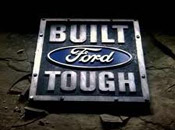Ford Transit Van Insurance Rates
Drivers have lots of options when shopping for insurance coverage for your Ford vehicle. You can either contact an insurance agent or go online to check prices from car insurance companies. Buying auto insurance from online rate quotes can be fast and easy, plus you may find lower rates.
If you're new to shopping for auto insurance online, you may be overwhelmed by the hoards of online companies selling insurance. Getting better Transit Van insurance cost doesn't have to be difficult. Just take time to compare quotes provided by online insurance companies. This can be accomplished by completing this short form.
Rates are impacted by...
Insurance premiums paid to insure a Ford Transit Van can fluctuate considerably depending on several factors. Including but not limited to:
- Higher performance Transit Van vehicles cost more
- Accidents raise premiums
- Multiple policies can save money
- How you use your vehicle
- Add-on coverages such as rental reimbursement
- Whether or not you have claims
- Maintaining coverage lowers rates
- Home ownership saves money
One important consideration that helps determine your rates is the age of the vehicle. New vehicles cost more compared to older Ford models so the cost to replace them may result in higher rates. But more recent Ford vehicles have more advanced features including a collision avoidance system, forward-collision avoidance, and active head restraints which may give discounted rates.
To get more specific information about how much rates will be for your vehicle, select the year of your Transit Van from the list below.
- 2018 Ford Transit Van Insurance Rates
- 2017 Ford Transit Van Insurance Rates
- 2016 Ford Transit Van Insurance Rates
- 2015 Ford Transit Van Insurance Rates
Liability insurance - This coverage will cover damage or injury you incur to a person or their property in an accident. Liability can pay for claims like pain and suffering, repair costs for stationary objects, and legal defense fees. Coverage is generally pretty cheap so buy as high a limit as you can afford.
Collision coverage - Collision insurance will pay to fix damage to your Ford from colliding with a stationary object or other vehicle. A deductible applies then your collision coverage will kick in. This coverage can be expensive, so you might think about dropping it from lower value vehicles. It's also possible to increase the deductible to save money on collision insurance.
Comprehensive protection - This pays to fix your vehicle from damage from a wide range of events other than collision. A deductible will apply then your comprehensive coverage will pay. The most your auto insurance company will pay is the ACV or actual cash value, so if the vehicle's value is low it's not worth carrying full coverage.
Uninsured/Underinsured Motorist coverage - Uninsured or Underinsured Motorist coverage protects you and your vehicle when the "other guys" are uninsured or don't have enough coverage. Since many drivers have only the minimum liability required by law, their limits can quickly be used up. For this reason, having high UM/UIM coverages is very important.
Medical expense coverage - Personal Injury Protection (PIP) and medical payments coverage pay for immediate expenses like EMT expenses, pain medications, and nursing services. They are used to cover expenses not covered by your health insurance program or if there is no health insurance coverage. Personal Injury Protection is only offered in select states but it provides additional coverages not offered by medical payments coverage.
How Much are Ford Transit Van Insurance Rates?

